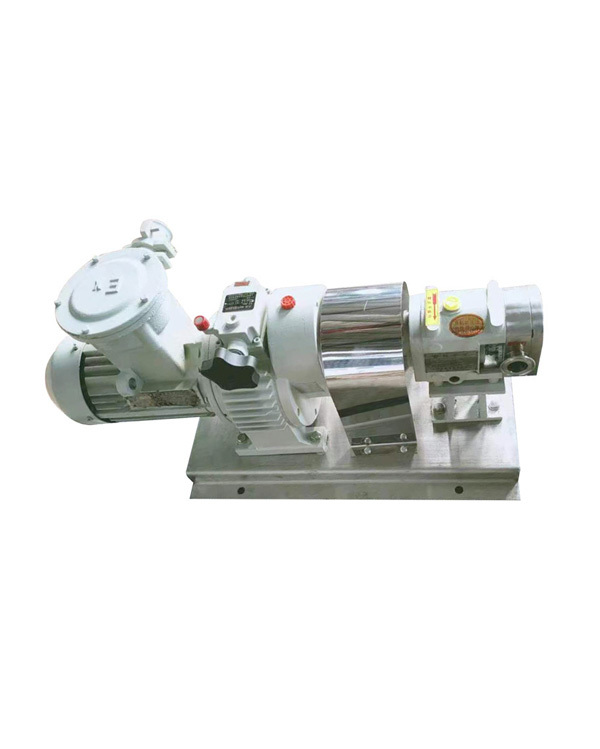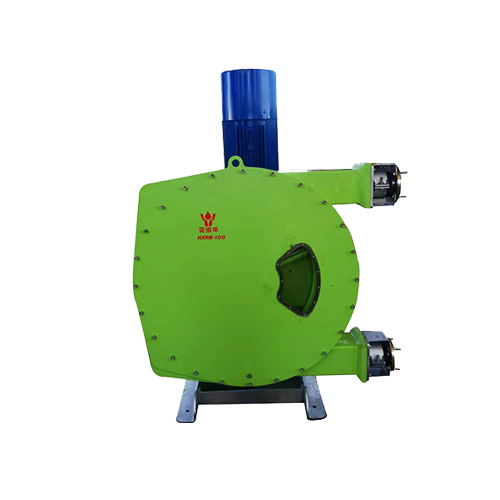Maximizing Efficiency: The Role of Rotary Lobe Pumps in Handling Syrup and Molasses
Feb 28,2025

Rotary lobe pumps have emerged as a vital solution in industries requiring the transfer of viscous fluids, particularly syrup and molasses. These pumps employ a unique mechanism that allows them to handle materials with varying consistencies, ensuring that the flow remains consistent and reliable. This capability is especially important in the food and beverage sector, where both syrup and molasses are commonly used in production processes.
The fundamental design of a rotary lobe pump consists of two or more lobes that rotate in a synchronized manner within a chamber. As the lobes move, they create a series of expanding and contracting cavities that draw fluid in and push it out, facilitating a smooth, pulsation-free flow. This design is particularly advantageous for syrup and molasses, which are known for their high viscosity. The rotary action minimizes shear stress on the fluid, preserving the quality of the product.
One of the standout features of rotary lobe pumps is their adjustable speed capability. The speed at which these pumps operate can be easily modified, allowing operators to optimize the flow rate based on the specific requirements of the application. For syrup and molasses, the ideal operation speed typically ranges from 30 to 150 RPM, depending on the viscosity and temperature of the fluid being pumped. By adjusting the speed, operators can ensure efficient transfer without compromising the integrity of the product.
Rotary lobe pumps are designed to handle not only the movement of syrup and molasses but also the challenges that come with these substances. For instance, both syrup and molasses can contain solids or particulates, and rotary lobe pumps can accommodate these without clogging or damaging the equipment. The materials used in the construction of these pumps, often stainless steel or other corrosion-resistant options, further enhance their suitability for food applications, ensuring hygiene and compliance with industry standards.
Maintenance of rotary lobe pumps is also relatively straightforward, making them a practical choice for manufacturers. Their simple design allows for easy access to internal components, which simplifies cleaning and inspection processes. Regular maintenance not only extends the life of the pump but also ensures consistent performance, which is critical when handling products like syrup and molasses that are sensitive to variations in processing conditions.
In conclusion, rotary lobe pumps are an essential tool in the efficient handling of syrup and molasses. Their unique design, adjustable operational speeds, and capability to manage viscous fluids make them ideal for a variety of applications in the food processing industry. By incorporating rotary lobe pumps into their processes, manufacturers can enhance productivity, maintain product quality, and ultimately drive business success.
The fundamental design of a rotary lobe pump consists of two or more lobes that rotate in a synchronized manner within a chamber. As the lobes move, they create a series of expanding and contracting cavities that draw fluid in and push it out, facilitating a smooth, pulsation-free flow. This design is particularly advantageous for syrup and molasses, which are known for their high viscosity. The rotary action minimizes shear stress on the fluid, preserving the quality of the product.
One of the standout features of rotary lobe pumps is their adjustable speed capability. The speed at which these pumps operate can be easily modified, allowing operators to optimize the flow rate based on the specific requirements of the application. For syrup and molasses, the ideal operation speed typically ranges from 30 to 150 RPM, depending on the viscosity and temperature of the fluid being pumped. By adjusting the speed, operators can ensure efficient transfer without compromising the integrity of the product.
Rotary lobe pumps are designed to handle not only the movement of syrup and molasses but also the challenges that come with these substances. For instance, both syrup and molasses can contain solids or particulates, and rotary lobe pumps can accommodate these without clogging or damaging the equipment. The materials used in the construction of these pumps, often stainless steel or other corrosion-resistant options, further enhance their suitability for food applications, ensuring hygiene and compliance with industry standards.
Maintenance of rotary lobe pumps is also relatively straightforward, making them a practical choice for manufacturers. Their simple design allows for easy access to internal components, which simplifies cleaning and inspection processes. Regular maintenance not only extends the life of the pump but also ensures consistent performance, which is critical when handling products like syrup and molasses that are sensitive to variations in processing conditions.
In conclusion, rotary lobe pumps are an essential tool in the efficient handling of syrup and molasses. Their unique design, adjustable operational speeds, and capability to manage viscous fluids make them ideal for a variety of applications in the food processing industry. By incorporating rotary lobe pumps into their processes, manufacturers can enhance productivity, maintain product quality, and ultimately drive business success.
Contact Us
E-mail :
sales@yaquanpump.com
service@yaquanpump.com
Phone/WhatsApp:
+44 7301702546
+63 9452052801
Address:
Room B208, Building 2, North Hongqiao Songri Center, No.215 Gaochao Road, Jiading District, Shanghai









